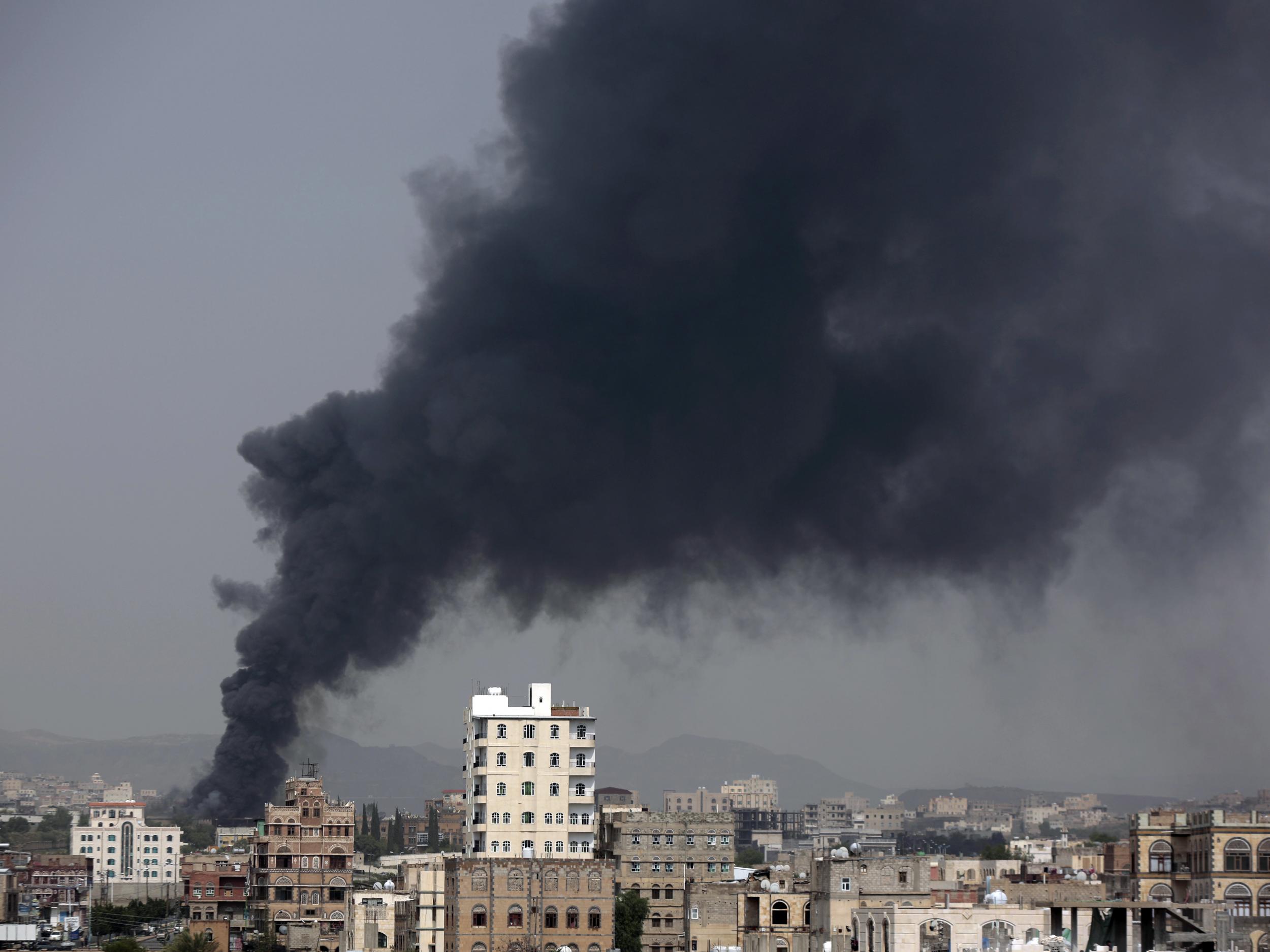Saudi Arabia resumes Yemen bombing campaign after peace talks collapse, killing 14 civilians at food factory
Fourteen workers at potato chip factory were killed while on overnight shifts

Your support helps us to tell the story
From reproductive rights to climate change to Big Tech, The Independent is on the ground when the story is developing. Whether it's investigating the financials of Elon Musk's pro-Trump PAC or producing our latest documentary, 'The A Word', which shines a light on the American women fighting for reproductive rights, we know how important it is to parse out the facts from the messaging.
At such a critical moment in US history, we need reporters on the ground. Your donation allows us to keep sending journalists to speak to both sides of the story.
The Independent is trusted by Americans across the entire political spectrum. And unlike many other quality news outlets, we choose not to lock Americans out of our reporting and analysis with paywalls. We believe quality journalism should be available to everyone, paid for by those who can afford it.
Your support makes all the difference.At least 14 people have been killed in Sanaa as Saudi Arabia resumed its bombardment of the Yemeni capital.
The civilians, who were working overnight shifts at a potato chip factory in the Nahda district, were killed following the disintegration of peace talks, according to medics.
The three-month, UN-backed negotiations in Kuwait crumbled over the weekend. Saudi-led air strikes on the capital Sanaa began on Sunday and continued on Tuesday.
The Saudi government is supporting Yemeni forces trying to rid the city of Iran-allied Houthi rebels.
Five women were among those killed at the factory, which had been hit before by airstrikes in Janurary. Yet there are no visible Houthi posts near the factory–the nearest rebel base is nearly 1.5km away.
The coalition also turned away flights into the Sanaa International Airport for 72 hours from Monday night, according to sources at the airport and an aid agency.
The United Nations has called the scale of suffering in the war-torn country “staggering”. Since the escalation of the conflict nearly two years ago, more than 6,500 civilians have been killed and 32,000 injured, according to the Norwegian Refugee Council.
During that time three million have fled their homes. Eighty percent of the country, or 21 million people, are now in need of humanitarian aid.
According to the UN, one of the major challenges now to the peace process is the poor state of the economy. A Saudi trade blockade has crippled the country's already weak finances.
Air strikes have also hit a military base, presidential compound and Republican Guard base, Reuters report.
Pro-government military are attempting to advance into the city from both the north and east.
On Sunday, nine civilians were killed in an air strike just outside Sanaa.
The onslaught comes just days after the UN envoy announced a month long pause in the talks for “consultations”.
Rasha Mohamed, from Amnesty International told The Independent: “While there’s been a lull in hostilities over recent months, there was never a genuine let-up in the Saudi Arabia-led coalition’s bombing campaign.
“We’re continuing to document the horrific impact on civilians who remain in the firing line, facing both aerial and ground attacks.
“We’re renewing our call on the UK and other arms-exporting countries to halt the flow of arms that could be used by the Saudi Arabia-led coalition to commit further violations of international humanitarian law in Yemen.”
Kristine Beckerle, from Human Rights Watch, said: “All parties in Yemen have repeatedly violated the laws of war, but international condemnation and calls for accountability have been lacking.
"As fighting scales up, protection of civilians should be paramount, and countries helping fuel the war, including the UK and US, supporting the coalition and whose weapons were used in unlawful strikes, should immediately suspend arms sales to Saudi Arabia."
Earlier this month Samantha Power, the US representative to the UN, warned of the dire consequences for Yemen if the negotiations were to collapse.
“The stakes in Yemen’s nearly two-year conflict could not be higher,” she said in a statement.
“If the political process were to fail, the risks would be grave.
“All parties must exercise maximum restraint and uphold the cessation of hostilities, remove any impediments to the delivery of humanitarian aid, and commit to a durable political solution to this conflict.
“The Yemeni people have suffered long enough and deserve a lasting peace, one that will deliver the security and economic growth that is so desperately needed in the country.”
The British government is facing legal action over the sale of arms to Saudi Arabia. Since the 1960s, Saudi Arabia has been a major buyer of UK weapons.
Join our commenting forum
Join thought-provoking conversations, follow other Independent readers and see their replies
0Comments